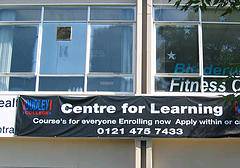 [Summary: I’m going to be blogging for the Plings project – exploring new ways of collecting and sharing positive activity information for young people]
[Summary: I’m going to be blogging for the Plings project – exploring new ways of collecting and sharing positive activity information for young people]
The Plings project has been one to watch for a while. Exploring new ways of collecting, processing and sharing information for on positive activities for young people.
Local authorities are under a duty to provide information on the out-of-school activities in a local area young people can get involved with – but collecting and disseminating all that information is a big challenge.
Plings, built by research cooperative Substance, is an open source project that has been seeking to pilot and explore ways of semantically aggregating and then distributing that data, through XML feeds, iCal widgets and other mash-ups. Now that Substance has won the contract to lead the DCSF funded Information and Signposting Project, they’re going to be accelerating the development of the Plings project, and working with 20 local authorities to generate stacks of shared learning about collecting, processing and sharing positive activity information. This week has already seen the data from Plings made available via DigiTV, and I’m in the midst of scoping how positive activity information could be shared through Social Network Sites.
And if I can keep up with all the learning being generated, I’ll hopefully be blogging as much of it as possible over on the Plings blog.
So, if you’re interested in public sector mash-ups, promoting positive activities to young people, or just exploring new ways of innovating in the youth sector, please do subscribe to the Plings blog and throw in your thoughts and reflections to the comments there as the project moves forward…
(Disclosure: My blogging for the Plings project is part of a paid contract with Substance. I’m sharing news of it here as I think the learning from the ISP/Plings project will be of interest to a lot of readers of this blog.)

